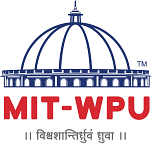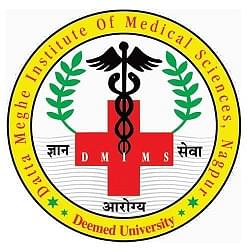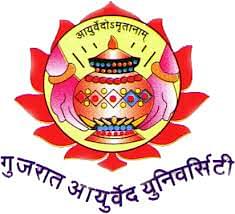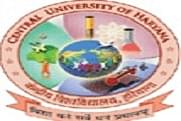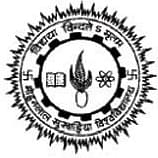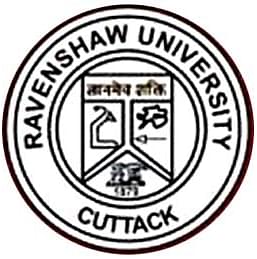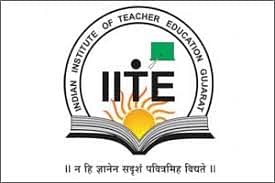Introduction about Ph. D in Metallurgical
APh. D in Metallurgical Engineering
at best collegeis an advanced degree program designed for students
passionate about exploring the science and technology behind metals and
materials. Metallurgical engineering is a multidisciplinary field that delves
into the extraction, processing, and utilization of metals and alloys. It
encompasses aspects of materials science, chemistry, physics, and engineering
to understand the properties and behaviour of metallic materials.
During a
PhD in Metallurgical Engineering, students typically engage in rigorous
research aimed at advancing knowledge in areas such as alloy development,
materials processing techniques, corrosion resistance, and metallurgical
characterization methods. They work closely with faculty mentors and often
collaborate with industry partners to address real-world challenges and push
the boundaries of metallurgical science.
The
coursework in a PhD program may cover a wide range of topics, including
thermodynamics, kinetics, phase transformations, mechanical properties, and
computational modeling. Students are also expected to develop strong analytical
and experimental skills, often utilizing cutting-edge tools and techniques in
laboratories.
One of
the defining features of a PhD in Metallurgical Engineering is the opportunity
for students to make original contributions to the field through their
research. This typically culminates in the completion of a doctoral
dissertation, where students present their findings, analyses, and conclusions
on a specific research topic. Successful completion of a PhD in Metallurgical
Engineering opens doors to diverse career paths in industries such as
aerospace, automotive, energy, manufacturing, and materials research, as well as
academia for those inclined towards teaching and further research.
What is admission process for Ph. D in
Metallurgical?
The admission process 2024 for PhD in
Metallurgical Engineeringtypically involves several steps, and the
specifics may vary slightly depending on the university and country. Here's a
general overview of the typical process:
Research
and Identify Programs: Prospective students should research universities and programs
offering a PhD in Metallurgical Engineering. It's essential to look for
programs with faculty members whose research interests align with yours.
Meet
Admission Requirements: Most programs have specific admission requirements, which may include
a bachelor's or master's degree in metallurgical engineering, materials
science, or a related field. Some programs may also require a minimum GPA,
standardized test scores (such as the GRE), letters of recommendation, and a
statement of purpose outlining your research interests and career goals.
Contact
Potential Advisors:
Reach out to faculty members whose research aligns with your interests.
Establishing contact with potential advisors can be beneficial, as they may
provide guidance on the application process and may even be able to support
your application.
Submit
Application Materials: Complete and submit the required application materials, which
typically include an online application form, transcripts from previous
institutions, standardized test scores, letters of recommendation, a statement
of purpose, and a resume or curriculum vitae (CV).
Interview
(if required):
Some programs may require an interview as part of the admission process. This
interview may be conducted in person, over the phone, or via video conference
and provides an opportunity for the admissions committee to learn more about
your background, research interests, and motivation for pursuing a PhD.
Notification
of Admission:
After reviewing applications, the admissions committee will notify applicants
of their admission status. If admitted, you may receive an offer letter
outlining any funding opportunities, such as assistantships or fellowships, and
any additional requirements or deadlines for enrolment.
Acceptance
and Enrolment:
If you receive an offer of admission, carefully review the terms and conditions
of acceptance, including any deadlines for accepting the offer and submitting
enrollment deposits. Once you accept the offer, you can proceed with the
enrollment process, which may include registering for classes and attending
orientation programs.
It's
important to note that the admission process can be competitive, especially for
PhD programs, so it's essential to start preparing early, meet all application
deadlines, and submit strong application materials showcasing your academic
achievements, research experience, and potential for success in graduate
studies.
What is eligibility for Ph. D in
Metallurgical?
The eligibility criteria for PhD in
Metallurgical Engineering can vary depending on the specific
requirements set by the university or institution offering the program.
However, some common eligibility criteria include:
Educational
Background: Most
PhD programs require applicants to have a strong educational background in
metallurgical engineering, materials science, or a related field. This
typically includes a bachelor's degree and sometimes a master's degree from an
accredited institution.
Minimum
GPA: Many
programs have a minimum GPA requirement for admission. The specific GPA cutoff
may vary depending on the institution and program, but applicants are generally
expected to have a high academic standing.
Standardized
Test Scores:
Some universities may require applicants to submit scores from standardized
tests such as the Graduate Record Examination (GRE) or equivalent exams.
However, this requirement can vary, and some programs may waive the GRE
requirement or place less emphasis on test scores.
Research
Experience:
While not always mandatory, having research experience, particularly in
metallurgical engineering or a related field, can strengthen your application.
This may include participating in research projects, completing a thesis or
research-based master's program, or publishing research papers.
Letters
of Recommendation:
Most PhD programs require letters of recommendation from academic or professional
references who can speak to your academic abilities, research potential, and
suitability for doctoral studies.
Statement
of Purpose:
Applicants are typically required to submit a statement of purpose or personal
statement outlining their research interests, career goals, and reasons for
pursuing a PhD in metallurgical engineering.
English
Language Proficiency: For international applicants whose native language is not English,
proficiency in English is usually required. This may be demonstrated through
standardized tests such as the TOEFL or IELTS.
Additional
Requirements:
Depending on the program, there may be additional requirements such as a
writing sample, interviews, or specific coursework prerequisites.
It's
important to review the specific eligibility criteria and application
requirements for each PhD program you're interested in to ensure you meet all
the necessary qualifications before applying. Additionally, contacting the
admissions office or program coordinator for clarification on any requirements
can be helpful.
What is syllabus of Ph. D in Metallurgical?
The syllabus for PhD in Metallurgical
Engineeringcan vary depending on the specific focus of the program,
the research interests of the faculty members, and the requirements of the
institution offering the degree. However, here's a broad overview of potential
topics that may be covered in a PhD program in Metallurgical Engineering:
Advanced
Metallurgical Principles: In-depth study of advanced topics in metallurgical principles,
including thermodynamics of metallurgical systems, kinetics of phase
transformations, phase equilibria, and diffusion in solids.
Materials
Characterization Techniques: Exploration of advanced techniques for characterizing the
microstructure, composition, and properties of metallic materials. This may
include electron microscopy, X-ray diffraction, spectroscopic methods, and
mechanical testing techniques.
Advanced
Materials Processing: Study of advanced processing techniques used in the production and
fabrication of metallic materials, such as casting, forging, extrusion, powder
metallurgy, and additive manufacturing (3D printing).
Alloy
Design and Development: Examination of principles and methods for designing and developing new
metallic alloys with specific properties and performance characteristics.
Topics may include alloy design strategies, phase diagrams, and computational
modeling.
Corrosion
and Degradation:
Investigation of corrosion mechanisms and degradation processes in metallic
materials, as well as methods for corrosion prevention and mitigation. This may
include electrochemical corrosion, environmental degradation, and surface
engineering techniques.
Advanced
Topics in Materials Science: Exploration of advanced topics in materials science relevant to
metallurgical engineering, such as nanomaterials, biomaterials, electronic
materials, and composite materials.
Research
Methodology and Experimental Techniques: Training in research methodologies,
experimental design, data analysis, and interpretation of results. This may
include statistical analysis, computer simulation techniques, and optimization
methods.
Specialized
Elective Courses:
Depending on the program and the student's research interests, there may be
opportunities to take specialized elective courses in areas such as advanced
metallurgical processing, computational materials science, surface engineering,
or materials for specific applications (e.g., aerospace, automotive, energy).
Seminar
Series and Research Colloquia: Participation in seminar series, research colloquia, and academic
conferences to present research findings, discuss current topics in
metallurgical engineering, and engage with the broader scientific community.
Dissertation
Research and Writing: Independent research under the guidance of a faculty advisor,
culminating in the completion of a doctoral dissertation. This involves
identifying a research topic, conducting original research, analyzing results,
and writing a comprehensive dissertation document.
Prospective
students should consult with the program coordinator or faculty members to
obtain detailed information about the curriculum and research opportunities
available in a specific program.





